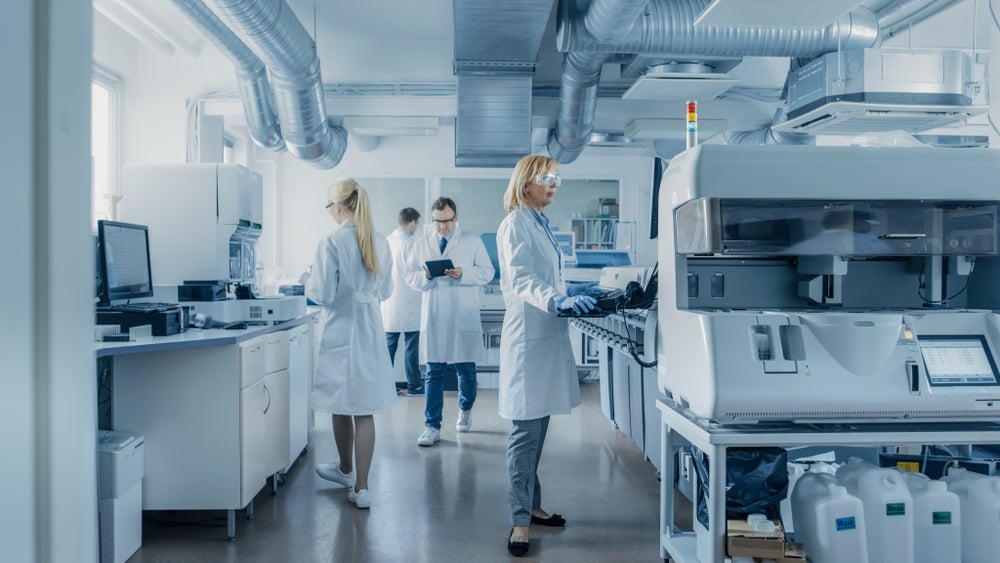
In the last two decades, biosimilars have generated savings for healthcare systems while improving patient access to vital medications, but their impact continues to vary by country.
However, various regulatory and policy hurdles as well as market dynamics have meant that there is a disparity in uptake. While Western European countries have been particularly fast adopters, the access imbalance is particularly evident in developing nations including those in Africa and Latin America.

Discover B2B Marketing That Performs
Combine business intelligence and editorial excellence to reach engaged professionals across 36 leading media platforms.
In this backdrop, a global biosimilar advocacy initiative, Act4Biosimilars, is now aiming to increase the global adoption of biosimilars by at least 30 percentage points in 30+ countries by 2030.
“When Act4Biosimilars launched in 2022, combined biosimilar adoption across 30 target countries in scope of tracking was 14% compared to the reference molecules,” says Arnold Vulto, independent consultant and educator, Vulto Pharma Education & Consultancy, and member of the Act4Biosimilars steering committee. “A key factor is a given country’s experience to date with biologic medicines including biosimilars. This can include government policy, regulatory pathways, payer incentives, post-marketing surveillance, and stakeholder education.”
He adds that as some developing countries are new to biologic medicines, novel policies and regulatory regimes may need to be set up. Collaboration with international organisations involved in medicinal procurement and distribution may also be needed.
Latin America – a unique challenge
Across Latin America, a growing number of biosimilars continue to be introduced, but policy-level and health infrastructure hurdles are limiting their potential. Countries such as Mexico, Colombia, Chile, and Ecuador, continue to struggle in expanding access. “While each country will have niche and specific issues, there are trends that we do see across Latin America when it comes to the distribution and payment of biosimilars,” says Vulto.

US Tariffs are shifting - will you react or anticipate?
Don’t let policy changes catch you off guard. Stay proactive with real-time data and expert analysis.
By GlobalDataHe explains that many Latin American countries, including Brazil which is one of the largest procurers of biosimilars in Latin America, still use price-only tenders for biological medicines. Procurement practices with multiple criteria are beneficial for the sustainability of healthcare systems.
“For countries such as Colombia and Ecuador, where “biocopies” (also known as non-comparable biologics) are available, price-only tenders can drive their uptake,” he adds. “This can have a potential impact on patient treatment as these “biocopies” have not undergone the same rigorous testing as biosimilars to demonstrate their biosimilarity to reference products. This uncertainty undermines the trustworthiness of biosimilars [for] prescribers and patients.”
He adds that for Latin America to advance its biosimilars market, robust biosimilar-specific regulatory pathways must be adopted so patients can trust quality-assured products. Additionally, greater effort is needed to kickstart and widen the education of healthcare professionals and patients on the science and benefits of biosimilars.
The Action Plan
Act4Biosimilars has launched an Action Plan that identifies the most relevant challenges and opportunities to increase biosimilar adoption under the 4As: Approvability, Acceptability, Accessibility and Affordability. In June, the Action Plan launch was announced by Sandoz, a Novartis division, which is a founding sponsor for the initiative.
The Plan includes 12 key initiatives that were selected to help address issues such as biosimilar sustainability, the lack of rigorous regulatory pathways, and the reticence among stakeholders to accept biosimilars.
According to a report by Act4Biosimilars, countries across the Americas, Canada and Brazil have found breakthrough solutions to streamline access to biosimilars as public health systems have been actively addressing barriers to adoption. However, the US continues to face significant challenges, largely due to newly-formed reimbursement policies and the complexities of the health system.
The Action Plan begins with the Americas and will then be implemented by region with Europe in Q4 2023, the Middle East and Africa in Q1 2024, and Asia Pacific in Q2 2024. Implementation will continue after the rollouts and the initiative will reveal additional efforts in due course.
Supporting governments globally
Act4Biosimilars has two approval-specific initiatives that Vulto claims will aid governments globally in adopting biosimilars:
- The implementation of rigorous regulatory pathways, which encourage governments to benchmark the World Health Organisation’s guidelines on biosimilar evaluation to ensure patients only receive quality-assured biosimilars.
- Streamlining the review process of biosimilars by optimising regulatory review procedures. In the long term, this aims to speed up patient access, but could also improve affordability.
“Across the globe, there is such diversity in healthcare systems and regulatory pathways that all require local knowledge to navigate,” explains Vulto. “Act4Biosimilars is unique as it takes a multi-stakeholder approach, as research has shown that this is a prerequisite for success of any biosimilar plan. [We] empower those on the ground with country-specific knowledge to take action and support governments to implement these changes.”
Future Outlook
With a large number of reference biologics due to lose exclusivity rights, more biosimilars are likely to become available across a wider range of therapeutic areas. The availability of biosimilars is a major advance in the quality and sustainability of healthcare, but it is crucial that initiatives such as Act4Biosimilars increase access to the global patient population.
The progress pf Act4Biosimilars’ Action Plan will be tracked by an Impact Index, using two sets of metrics which reflect biosimilars adoption at a global and country-level. The metrics will be updated every two years.
Vulto says the Act4Biosimilars mission is to increase uptake by at least a 30-percentage point increase, “resulting in a minimum target of 44% biosimilar adoption by 2030”.




